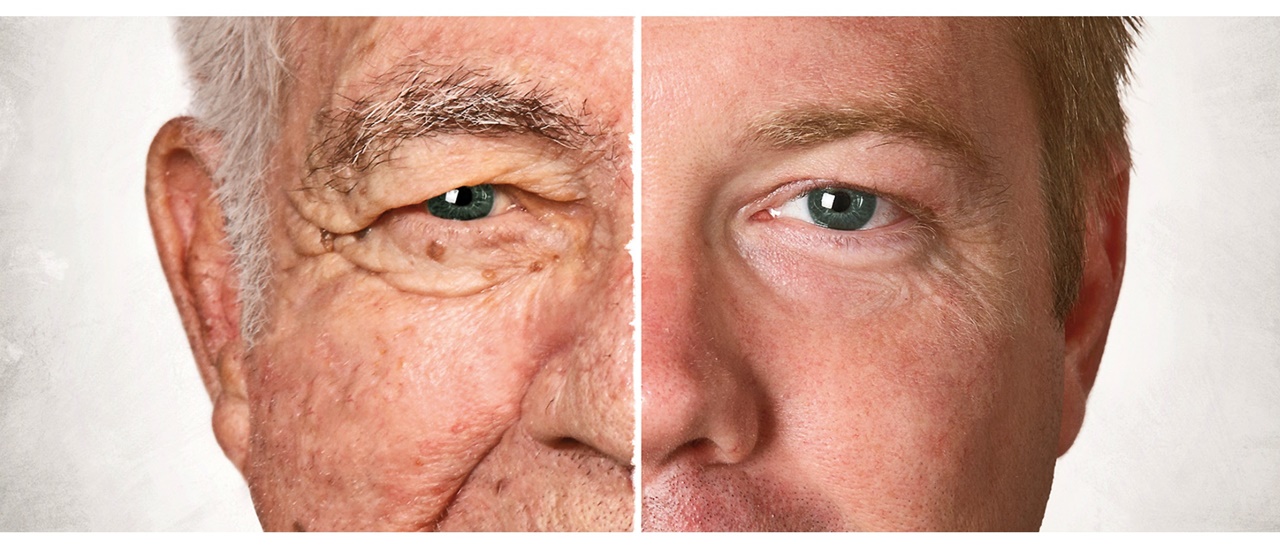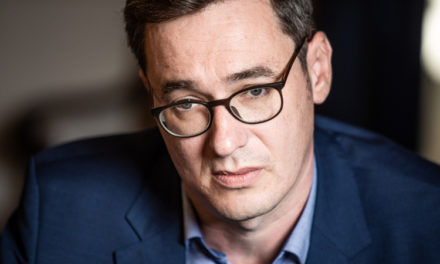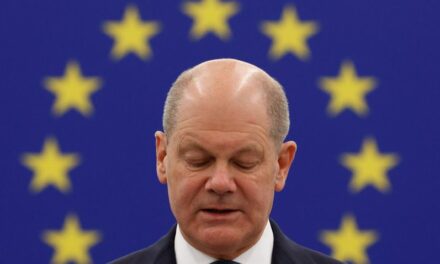We, who were born around the middle of the 20th century or in the second half of it, often observe the attitudes and decisions of the 21st century youth towards politics and its issues in a paralyzed way. We don't understand how they can think like this, how they could be so far away from our opinion, which is still considered correct - and voiced - today.
They have indeed moved away from us, but it is also possible that they do not really know our opinion about the world and history, that is, what led us to this path. Thus, their own attitude is determined by the set of narratives that are loud and serve foreign interests, which bombard them in various ways through the virtual world of the Internet and social media.
And if that's the case, we, the previous generation, are the only reason why they don't know us. After all, they may only know our sighs, the "boring-boring" repetition of our 2/3 victory, the dream image of a "separate passenger" Hungary, the voice of the uniqueness of our language and history, without any deeper and underlying content. Of course, they see all of this as superficial, and they even smile with a pout, since their consciousness lacks the real historical background that moves us, the older ones.
Therefore, with this article, I will try to tear them out of the false virtual world they live in thanks to the Internet and show them why I think the way I do at the age of 72, and why I also consider things important that they may not have noticed until now. With this, I want to present the real historical background that moves us, the older ones.
Because I, like other members of my age group, by God's will, live my life in the 20th and 21st centuries, on a continent with a relatively high standard of living, whose color and national composition is like a colorful bouquet of field flowers.
Yes, that's how it all started around the middle of the 20th century. Immediately before this, this continent experienced the greatest catharsis in the history of the world as we know it.
When bells rang on May 9, 1945, and signaled World War II. end of World War I, everyone breathed a sigh of relief. Some came home from the bunkers, some from the camps, and some from the front. A new life has begun. The young people began to build a new Europe full of vitality. Then two great powers unexpectedly intervened in this peaceful development; the USA on the western side and the also victorious Soviet Union on the east.
One side got money and the Marshall Plan, the other, the eastern region, got ideology. One that forgets its nation and focuses only on internationalism between nations: on "equality" and uniformity. So, slowly, everything on this page turned red.
The other side offered the people the full meat pots. With cars, prosperity and travel. Only one thing was important for this "charitable giver", that he too forget his national identity with this people. Forget your ancestors and your history. Thus, the Western citizen and the youth fell unnoticed into the cesspool of individualism. He no longer had any other goal but his own advancement, his own self-assertion, his own enrichment. And all this without thinking about his country, because it meant nothing more to him than an economic grouping that ensured his well-being. He didn't care if they spoke German, English or French there. The point was his individual assertion. And ever since then, we have had the feeling that there are two Europes in this Europe that we thought was united. That is, even today, more than 75 years after this great historical turn.
Because it is true that the Soviet Union has now disintegrated, but there is an expanded one in its place, the former so-called the European Union, which also includes socialist countries, which, according to the old "well-proven" method, promotes internationalism and strives to abolish nations, for the sake of a united Europe.
However, the more intensely and deeply we look at the relations of the European countries today, the more and more we will come to the opinion that the group of former Eastern European countries, in the past decades, despite all their faults, created more valuable people than the capitalist system of the Western world at that time.
This is an apparent contradiction, since a significant part of technology and today's modern achievements come from the Western Hemisphere of Europe, but if you think about it more, epoch-making discoveries were made in the same proportion in both regions of Europe. However, the people living on the east side, countering their political oppression, have always looked "longingly" towards the west side, while simply overestimating their achievements and culture. In the same way as today's Hungarian youth do, when they follow a false dream and see a free and democratic Europe in the countries of the European Union that lie west of us.
However, it is good to bring to our attention that although freedom of thought was declared free in Western Europe, freedom of thought was realized on the eastern side.
Just like today. Because the Western European citizen only believes that he is free to think while repeating the narratives of the media, in contrast to the countries of the V4, where citizens are free to express their opinions, even against what the media dictates to them.
That was a big difference then, and it still is today. But what could be the reasons for this?
One of them is certainly that in the thinking of European people and peoples, in their opinion of the world and in their way of life, we can observe fundamental differences due to the origin of these peoples, both in the decades after the war and today. As you know, the people of the countries of the former "Eastern" block belong to the Turanian race, while the people of Western Europe are mostly Indo-Germanic. The Turanian-Scythian character, as we know, has survived most clearly among us, the Hungarians, where not only our race, but also our language connects us to this group. However, we must not forget that, for example, the Poles, who today speak a Slavic language, are actually made up of the Sarmatian and Scythian races and are genetically our closest relatives.
In fact, Slovaks are also Slavicized members of the former Hungarians, who speak with a vocabulary derived from Hungarian, but with Slavic grammar (see the works of Csaba Varga).
We now know about the Croats that they are the descendants of the former Avars, that is, white Hungarians, which is why they are so different from the Serbs, with whom they fought a life-and-death struggle.
The Romanians, who, based on their fictional history, claim to be descended from the Dacians, are actually, in part, the descendants of the Dacha-Scythian-Turanian tribe.
And the Bulgarians, as it has been known for a long time, are relatives of the Hungarian people, who also lost their language due to the pressure of the former strong Slavic influence.
So we can see that, surprisingly, the former Eastern and Western European border line was, in fact, a political manifestation of a racial separation that existed and is still effective in Europe at one time and certainly still is today. It seems that at that time they knew very well the II. the victorious great powers of World War II, what they did when the once unified Europe was divided into two parts.
Of course, this difference still applies today, although the political boundaries are blurring. Thus, this can be an important factor in the problem raised earlier, the striking difference between citizens living in the two halves of the "common" Europe.
Of course, in addition to the above, there is another reason for this, and this is the well-known fact that the thinking of youth soars more freely where the body is more closed. That's how it used to be, the so-called also in socialist countries. This oppressive political influence and its current consequences can be clearly seen in the history of modern Germany. Here, during the unification of the eastern and western parts of the country, although the people were racially the same, the former two differences in oppression and its consequences can still be seen today.
Everyone who can afford the so-called comparing East and West German citizens and getting to know the psychosocial characteristics of the people can prove that the latter - that is, the former Westerners - have become comfortable, their interest is much more superficial and indeed much more limited to the level of material goods, consumption, and appearances. At the same time, the former "East German" group still thinks about what they saw, 33 years after the fall of the Berlin Wall, and wants to get to the bottom of it and try to understand it, its driving forces and elements. And this already results in a truly perceptible difference on the geographical map of the Germans. However, this difference from the Westerners is the best in us, the Hungarians.
We can also hear confirmation of the above from many Hungarians who have been living in the western part of Europe for decades, especially from those who live in Germany. Over many decades, the vast majority of these Hungarians had to realize that the "Hungarian perception" and outlook on life they brought with them, their environment, the former "West German" citizens simply did not understand. And this - unfortunately - is the same now as it was two or three decades ago. The situation in this area has not changed much. As then, exactly as now, they are almost clueless regarding the relations between Hungary and the "Eastern bloc".
The reason for this and why we are not understood has deep-rooted social and psychological reasons. The person who was always able to buy what the people living on the eastern side of Europe could not - and in the same way partly cannot today - is the so-called he will look at the "Eastern problem" with confusion. He tries to analyze it, but he can't get any further than an intellectual, superficial feeling. The reason for this is that this person cannot even imagine why, for example, the same goods could not have been on display in our shop windows as they were in, say, Frankfurt, Cologne or Munich. Of course, he knows that there is a difference, but he explains this with the fact that these peoples live to the east of him. And this is almost a stigma, because in their eyes it means nothing more than a lower cultural standard. So these people, they say, have fewer needs. Because, isn't it, "what is in the east is always more undeveloped and primitive."
This may sound unbelievable, but it is exactly the way it is, because it has been instilled in him. And this is exactly how today's Western European youth thinks. This is the "superiority" consciousness that prevents the young people living there from seeing clearly. And this is precisely what today's Hungarian youth must not forget.
Because the new citizens of the West - the so-called EU citizens - they still don't understand the point. Not because they are not able to place their consciousness in the living conditions in which a Hungarian, an East German or a Pole lived and still lives today. So it did not reach their awareness that the "East Central Europeans" have less not only because they can't afford it, maybe they can't produce it, or maybe they don't need it, no way! But because a great power, with its aggressiveness, did not allow this, or he won't let them. This great power was the Soviet Union until the end of the 80s, and today it is the new aggressor, money capital, globalization. Just think about the delivery of different quality foods, washing powders and other articles of the supermarkets to the Middle Eastern countries of Europe, which - to my shame - only came to light a few years ago!
No, they didn't understand that then, and they don't understand that either. And they don't really care. It was unimaginable at that time for a Westerner, or more precisely, an average Westerner, to think this through. But for the sake of momentum, let's add once more that this is the case even today. After all, for example, this young German should also think about why his parents and he can now have more, when his father and grandfather lost that certain war they fought together, like the Hungarians, for example...

Source: Mindset Psychology
This Western youth does not notice (because they do not allow him to notice!) that those who defeated them and later fattened them, gained their power over them by feeding them with material possessions and better-than-best food through their stomachs and senses. In other words, they were filled with all external and apparent material goods in such a way that in the end their spirit became heavy and their soul forgot to fly. They had to pay for the lost war in a different way than we Hungarians had to.
America and the Soviet Union worked and thought differently. One fattened and dumbed down, the other hit and beat, locked up and raped. Two poems written by Petőfi in January 1847 are well connected here.
The song of the dogs
The thunder howled
under the cloudy sky;
Winter's twin son,
Rain and snow are falling.
What do we care?
ours The corner of the kitchen.
Our gracious good lord
Placed me here.
And we have no problem with food.
If our master is full,
it will remain on his table,
and the rest is ours.
The whip, it's true,
sometimes snaps,
and its snap hurts,
but: the bruise boils.
And after anger, our lord
beckons again to himself,
And we happily lick
feet!
This perfectly reflects the Western, Western European perception, and clearly points to the path that the West Germans took after the war, and which became their class section. Rock concerts, drugs, and prosperity, as we have seen, provided them with comfort and wealth, but they had to pay a heavy price for all this, by losing their national identity and the true freedom of their souls. As incredible as it is, it is still the same in the western half of Europe today, only the farmer, whose hands are licked, perhaps achieves his goal more skillfully and unnoticed.
Now let's follow the direct opposite of this view of life, which is expressed by Petőfi's other poem, "The Song of the Wolves". This is about us, the peoples living in the eastern half of Europe, and among them it is clearly about the Hungarian people:
The thunder roared
Under the cloudy sky,
The twin son of winter,
Rain and snow fell.
A barren wasteland
This in which we dwell;
There is not a single bush where
we can pull ourselves.
The cold outside here,
The hunger inside,
This double pursuer of ours
Tortures cruelly;
And there is the third one:
The loaded weapons.
down onto the white snow
.
We are cold and hungry
And shot through our sides,
All misery is our share...
But we are free!
And this is indeed the case even today, under the leadership of today's Hungarian government. Because our country - no matter how incredible it sounds - is freer than those living west of Lajta.
Which one was worse at the time and which perception is right is a big question today. And this will be decided by the Hungarian election on April 3, 2022.
I see that back then it was better to live with our blood shed, wet and cold, defeated and isolated, because after all, that was our luck.
This is exactly what made us curious, and we passed this interest on to our children, so that we could still get to know the world that was physically closed off from us. Our soul searched and searched for the free way, and finally found it, because our knowledge remained free. We secretly fled to our history, to the cultivation of our national consciousness, and we mourned our seclusion with our folk songs. Our national relics have been resurrected, which the people and the youth still stand around and sing about today. The hidden double meaning of our hits warmed us up, our folk songs and the Kodály method were learned elsewhere, even in Japan.
And if we sang when we HAD to sing - because our vanquishers ordered us to do so - we were only affected by the good. What made us a community.
Because the Poles, the East Germans suffered just like us... and when the Internationale and the countless starters of the Soviets were SANG with us, we all sang with bitter tears in our eyes and clenched fists. They suffered in the same way because they had to experience and endure the same cataclysm as us. But it was also the song of Romanians, Slovaks and Bulgarians. And while we were singing like that, we somehow got closer to each other. To the members of our fragmented Hungarian nation - who were scattered in the neighboring countries - as well as to the other peoples of the east.
Therefore, the eastern part of Europe - unnoticed and unwittingly - formed into a community. Almost as our leaders and oppressors wanted it, and yet differently, very differently. This was what we knew, even then, with all our consciousness. And we felt in our guts that one person belonged to the other, since we were not only bound together by geographical proximity and the colorfulness of different nations, but also by the common burden, the hidden hatred against the common external force, which, however, we could not express. So we sang, we sang together. And this community force drives the politics of the V4 and the cohesion of its countries even today. The common resistance against the now coming from the West, but equally oppressive power. Today's Hungarian youth should not lose sight of this either!
In the meantime, what the former Marshall economic aid, i.e. the benevolent pat on the back of the winning bloc, resulted in was slowly coming to fruition for the citizens of the western half of Europe. He began to look at his neighbor more and more jealously, so that he wouldn't get more of the greasy bucket. And so one person slowly became the rival and enemy of the other, without you even realizing it. After all, it didn't even reach their consciousness. Yet it happened that way, because that's what the winners wanted. In the end, people slowly drifted apart from people and communities from communities, and then their nation fell apart.
The will and revenge of the victors is FINALLY FULFILLED.
The West German nation fell into pieces and its creators. For the family and the individual, which fights only for itself, without the concept of nation even once arising.
Nowadays, however, after the family, the individual has become the target of attack, thanks to the ever-spreading gender ideology and the LGBTQ movement. Selfishness finally prevailed between them, because it was also part of the PLAN. This was the plan of the winners!
While in our schools, even if it was often one-sided and distorted, we could still learn everything - that is, everything "good" (and only the good!) - about our eastern neighbors, and everything "bad and decadent" (and only that!) about the Westerners , until then the Westerners allowed only the most necessary into the minds of their new generation. And so it is today. Don't let them learn to think! But why, since all they have to do is buy and forget anyway.
Let them forget their past and their identity, but live richly like the fattened cattle serving the interest of its master. That was the difference between us. And this is still today. The Westerner was fat and could travel the world in better cars, but in reality he was only interested in money, while the Hungarian - lacking money - was interested in the truth.
Which he slowly learned from his environment, his parents and grandparents. We learned from them the truth hidden in school, the "accusatory negativity and villainy" about our country's neighbors, but we also learned the "good" about the West.
As a result, the people's knowledge became more and more wide, because they not only got to the "why", but also got the answer. Because we, to the east of Western Europe, in the seclusion of the "Soviet bloc", really lost a lot of things, but we certainly kept our identity and our national consciousness at all times. Whether our conquerors wanted it or not. This was the defense of the nation against its enemy and oppressor. This consciousness then slowly embraced the entire nation and our paralyzed soul finally moved, then slowly learned to fly, rose, higher and higher, until finally it flew and could claim everything as its own.
However, the spiritual, spiritual and material distance grew and grew between the citizens of the East and the West of Europe, until finally Europe cracked and cracked SPIRITUALLY.
Even today, 33 years after the fall of the "Berlin Wall", this split causes the seemingly insurmountable problem of re-creating a unified nation from the two diametrically opposed attitudes and spirits of the German citizenry. From getting fat and learning to fly.
How ridiculous and yet how heartbreaking.
While the politicians there have been trying to forge and patch this together for more than two decades, the members of the Hungarian nation who live abroad and are rooted in the West perceive, experience and suffer even more this tension - with the hardened and open spirit of their Hungarian knowledge. Because they remember the tragic fate of their own country. The tragedy of their torn nation, and at the same time the shameful failure of our patching together, due to the embarrassing result of our former referendum.
It is difficult to say where the difference in consciousness will ultimately lead. However, it is a fact that spiritually Europe is divided again. And it seems quite certain that few of the politicians of that time counted on this mental and spiritual difference.
The former West German citizen treats his fellow Eastern compatriots from the former GDR with superiority and deep contempt for those who abound in material wealth, even now, after 33 years, because he actually considers them only "up-and-coming" Easterners. And he actually doesn't know anything about their more than 40-year "socialist" past - apart from the jumbled mass of former negative West German propaganda texts. Not even his hits, actors and movies of that time. Even today, he does not want to see this and acknowledge their performance.
At the same time, the citizen of the East, the former GDR, sees only the uneducated, loud-mouthed and at the same time insensitive to culture, NEW CONQUEROR in the Western compatriot. The one in whom the national consciousness has died out, who convulsively wants to become a "European citizen", thereby denying his past, losing his roots to his nation. Strange. But the strangest thing for me is that in addition to all this, after the unification of their country, they even blame each other for the unexpected development of their new misery. The Westerner blames the other for the forced reduction of his material possessions and the drop in his standard of living, while the Easterner blames him for the loss of his culture and job, as well as the insecurity that has developed.
The opposite is irreconcilable.
This is a great lesson for us Hungarians. After all, the dirty-minded politicians of globalization wanted to sow the same contradiction among the Hungarian people, when as a result, our country once voted with a blushing NO to the law on Hungarian citizenship. Since then, however, most of our nation has woken up. He noticed that what is happening in Europe, that is, all the actions and laws that come from here, are aimed at destroying his national consciousness and thus ultimately against his own Hungarianness.
However, unlike the Hungarians, the "average European citizen" has not noticed this yet.
I was able to observe the process described above - and described as a "German phenomenon" - during the former expansion of the European Union, but I see the same thing today as well. That is, when the "well-fatted" Western Europe connects with the "flying" Eastern Europe. And interestingly, now the two sides blame each other for the same reasons that we saw with the German citizens. As I once met few West Germans who thought differently about the so-called About "Ossi", that is, Eastern Germans, this is the same opinion of today's Germans about the other peoples of the "Eastern bloc". Including us, Hungarians, with the derogatory labeling of "paprika, goulash and Piroska" for us.
Of course, they don't say this openly, they only guess, but their distorted opinion - subconsciously - ultimately determines all their actions. Although the former East German citizen may still remember Lake Balaton, the joy of the holidays spent there, and he must have learned something about Petőfi and Liszt at school, but the former Westerner stubbornly ties himself to his convictions. He does not allow his ingrained opinion to waver; he still considers us only a backward people from the East. Descendants of the former tent-dwelling barbarians who once invaded Europe.
Perhaps a month ago, I heard in Germany, after briefly praising Hungarian food and wine, that what else could be done in Hungary than eating and drinking, since that is why Western tourists go there.
"Which one," I interjected, because this sentence struck me in the heart. Especially because the person who said this, along with the average person, does nothing else in their free time than eat, drink and sleep in their German homeland, which they value highly.
Of course, there is also one of his "most important" pastimes, shopping, which he does abundantly and proudly, thereby expressing his "free human" and civilized nature. Of course, that's not why he comes to Hungary, rather for a vacation. However, he continues to express his judgment with lofty arrogance, since among his needs and expectations, only the option of "eating and drinking alone" remains for him. He sees nothing else from Hungary.
However, let's note that the masses of visitors with this attitude do not actually see any other opportunity in Hungary, because they are not even looking for it.
And those who do not look, as is well known, will not find. Thus, these tourists really cannot find anything else in our country. The culture, the Hungarian landscape, the historical games, the national architecture, the museums, the castle visits, the multitude of above-average concerts, the countless children's programs, and the many, many other opportunities certainly do not arouse in them a real need to see them. It does not awaken in them the feeling of an unquenchable desire for knowledge, and so for them these are - for lack of a better word - non-existent. Just as the color blue or red does not exist for the blind.
And we Hungarians look at this with incomprehension, it is incomprehensible to us. Because we are receptive and interested in everything, especially learning about other peoples and foreign cultures. This can certainly be one of our many national characteristics.
Of course, we as hosts also notice this difference in perception - and a certain degree of unpretentiousness - in our Western tourists, and we know about them. However, due to our famous hospitality, we try to give our guests everything they want and allow them to do and know everything they want, be it on the shores of Lake Balaton or in Budapest. So it is natural that, among other things, we also offer him with our food. However, if - with this spiritual blindness instilled in him - he only wants this much, then this is all he will get in the country, and this will be what he will trumpet about us in the world. However, our culinary culture is only one component of our rich and diverse cultural heritage. Because we know that we have an ancient culinary culture connected with good food and drinking. Both the soul and the body can be happy at the same time!
How could we explain to these skeptics the charm of the Csiksomlyó farewell, the power of Pusztaszer and the sanctity of our Crown? How could we make them understand that our people bathe and thrive in the flood of programs? That with us the woman: value. And that we didn't have to emancipate the woman to shame - as in Western Europe - because we always carried it on the palm of our hands. In fact, if necessary, we even sacrificed our blood for it "Vitam et sanguinem!" (1741) with an exclamation.
Because we certainly had our Erzsébét Szilágyi, our Ilona Zrínyi, and our István Rozgonyi, and among our heroic women of Eger, our Klára Dobó. We had Zsuzsanna Lórántffy, Blanka Teleki, and I could go on and on, not to mention our Árpád princesses and female saints. How could we explain to them that we all carry the Virgin Mary crowned in our souls, even the majority of our Reformed Christians? And many, many other things, which are basic and understandable facts for us?
But let's not expect the poor Westerner to understand all this! Let's just keep eating and drinking, here, at our place. After all, he came from the other side of Europe. From where they think differently and about other things.
But if you still want to get to know us and our culture online, you can.
You can get admission. Be careful, however, only if and only if you ask for this not with haughty condescension, but quietly and modestly. Because you have to ask! "Because he who knocks is forgiven!" Then you can get to know us. Then he will find out that we are different than he thought until now, and even that we are not even in the East, as they believed. Because we are right in the middle, in the middle of Europe. And what is the center of something is also its axis. This is our secret, and let it remain so.
Every young Hungarian must cherish this spiritual secret. We must not get stuck in the material world dictated by globalization, we must not make shopping and the opportunity to travel to the West the only goal of our lives. It is worth seeing what the German citizen turned into in his material pride, while stroking his wallet. Let this be a warning example!
How much easier Kossuth's life would have been if he had chosen the lucrative legal career instead of the revolution, how much differently - and certainly not in a mental institution - Széchenyi's life would have ended if he had stayed on his huge estate and continued to faithfully serve the his emperor, just as some people nowadays want to serve the European Union.
Also, Petőfi could have had a simpler life, if instead of writing revolutionary poems, he would have scribbled fashionable poems and sold them for good money to the newspapers that wanted them. Just as many people nowadays earn their living in our country by serving the Western media.
Come to think of it, they could have lived that way. But not! All three of them chose a different path, thanks to which they are still alive in our memory today, and we know that they served the country with their activities.
To live and continue to live is a fundamental right of everyone, of every young person in Hungary, but not in such a way as to sell oneself and undermine the reputation of one's country.
Let's preserve what we received from our ancestors thousands of years ago and not be misled by good-sounding liberal slogans. This does not build us and our country, but those who strive to eliminate it.
This baton was handed down to us by our fathers and grandfathers, and now we can only pass it on. Some will accept it and some won't. The future of the country depends on how many people drop this baton from their hands and how many pass it on. As we did.
TTG












